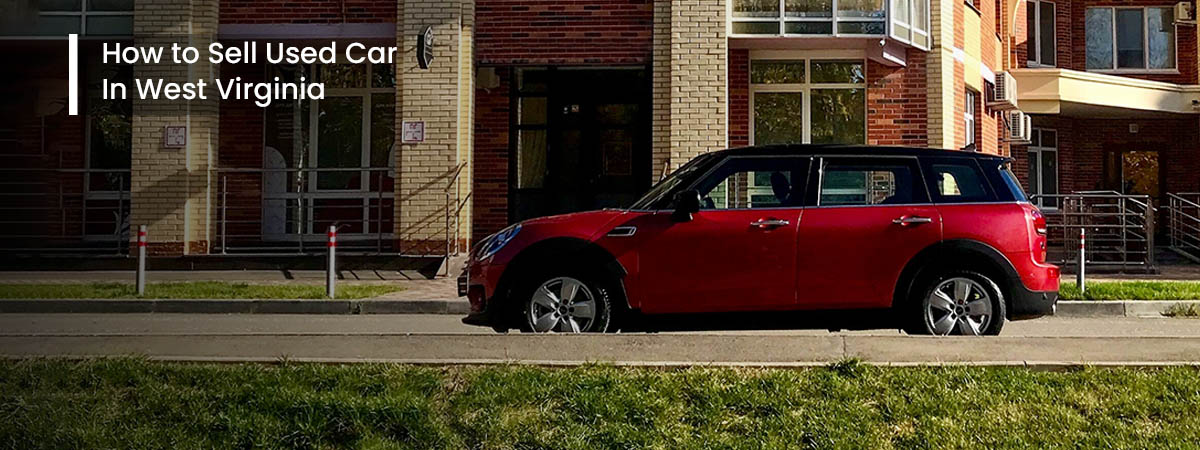How to Sell a Used Car In Pennsylvania?

The procedures and approach for selling a car online vary by state. Discover how to sell your used car or truck in Pennsylvania confidentially.
If you reside in Pennsylvania Dutch Country, the Poconos, Happy Valley, the Susquehanna River Valley, the Southern Alleghenies, or the larger Pittsburgh region and want to sell your old vehicle or truck privately, you've come to the perfect location. With an estimated 4 million registered trucks and vehicles in Pennsylvania, it's no surprise that thousands of individual car owners in the Keystone State have utilized cashforcarsinc.com to sell their vehicles. We've explained the five stages and documents required to sell a car in Pennsylvania so you can sell your vehicle quickly and for the most money.
Remember that most states in the United States regard the car title as a legal document; therefore, use the legal names (no nicknames) of both parties involved, as well as legible handwriting in black or blue ink. Mistakes, typos, and the use of white-out may render the document null and void, so proceed with caution and take your time filling it out.
Step 1: Allow the buyer to have a third party assess the vehicle
Most private automobile buyers pay for a pre-purchase vehicle check performed by a skilled and certified auto mechanic of their choice. Although the buyer pays for the inspection, the seller and buyer must agree on the date and location of the inspection. If the inspection reveals any problems with the vehicle, you should save the report for your records as the seller.
Step 2: Organize and collect all vehicle papers
Find all maintenance records, the owner's manual, and other vehicle papers. If you can offer the buyer extensive and thorough maintenance documents, it will give the buyer confidence that the automobile has been properly and regularly maintained. In Pennsylvania, any of the following are acceptable as ownership documentation and should be presented to the buyer if available:
- Manufacturer's Certificate/Origin Statement
- Court Order Assigning Ownership
- Salvage Certificate
If a lienholder holds the seller's certificate of title electronically, a paper title must be secured before the seller may transfer ownership of the car and the buyer can apply for a Pennsylvania Certificate of Title.
Step 3: Create a Bill of Sale
A Bill of Sale for Pennsylvania should include the following information, even if it is not legally required in Pennsylvania:
- Vehicle Year, Make, and Model Vehicle Identification Number (VIN)
- Date of Purchase
- Purchase Cost
- The buyer's legal complete name, address, and signature (s)
- The seller's legal complete name and signature (s)
When the buyer seeks to transfer the title or register the car in their name, a Bill of Sale might be useful. As a recommended practice, many private automobile owners in Pennsylvania notarize their Bill of Sale.
In Pennsylvania, private car transfers are subject to a sales tax based on a percentage of the vehicle's fair market value rather than the purchase price based on the Motor Vehicle Understated Value Program. If the vehicle is being gifted, the seller should put a gift purchase price of $0.00 on the Bill of Sale, and both the seller and buyer must fill out and sign an Affidavit of Gift form MV-13ST. Gifted vehicles are exempt from paying sales tax.
Step 4: Change the title
A Pennsylvania Certificate of Title must be transferred by an agent, tag service, or motor vehicle dealer who is an approved Penn DOT agent, according to state law.
If the vehicle's title has been lost, stolen, or severely damaged, you must file for a replacement title using Form MV-380 and pay all associated fees before selling the vehicle. If the title shows more than one owner, the following number of signatures will be required based on the link between the names: Furthermore, all individuals specified must sign. Alternatively, either vendor can sign; just one signature is necessary. If no connection is specified, the default will be "and," and all owners (sellers) must sign. In the event that one of the car's co-owners dies, vehicle ownership is automatically transferred to the surviving owner(s), and a new title may be obtained by the surviving owner. Read this "Vehicle Transfer After Death of Owner" fact sheet whether the vehicle is part of an estate, a will, an inheritance, or is not included in a will.
In the presence of an authorized Penn DOT official, Pennsylvania private vehicle sellers must complete the following on the car's title:
- Their legal name should be printed and signed.
- On the Pennsylvania title, get their signature notarized or validated. Provide suitable identification.
- Keep track of the vehicle's odometer mileage.
- Print the legal name and address of the buyer.
The buyer must complete Section D on the front of the title. All owners must sign if the car is being titled in the names of several buyers. If the vehicle is already registered in Pennsylvania, the buyer must complete Form MV-4ST, which will be issued by the DOT agent. If the car has an out-of-state title, follow these steps:
The National Highway Traffic Safety Administration's (NHTSA) odometer disclosure standards for private car sales in Pennsylvania were revised in December 2020. Any vehicle of the model year 2011 or newer (2012, 2013, etc.) that is transferred between January 1, 2021, and December 31, 2030, will require an odometer disclosure. Beginning January 1, 2031, every vehicle less than 20 model years old will be required to have an odometer disclosure. Previously, the NHTSA only mandated disclosure for the first ten years. Cars manufactured before 2010 are exempt from odometer disclosures. The Pennsylvania Department of Motor Vehicles provides this useful odometer fact sheet.
Step 5: Take your license plates off
Remove your license plates from the car before completing the sale. The buyer should never be provided with the license registration plate. Unless the seller is transferring the plate to another vehicle, return the registration license plate to:
- Bureau of Motor Vehicles
- Return Tag Unit, 1st Floor
- 1101 South Front Street
- Harrisburg, PA 17104
Buyers who buy a car from a private seller but do not have a registration or license plate to transfer may acquire a 90-day interim registration through an authorized Penn DOT representative. Beginning in November 2013, Pennsylvania no longer issued automobile registration stickers; however, vehicle owners are still obliged to keep a valid and current registration card. Cancel your insurance when the sale is finalized.
Visit the Pennsylvania DMV website for further information.
The Easier Way to Sell Your Car
Now that you've learned everything there is to know about selling a car in Pennsylvania, it's time to determine where to list it. Cashforcarsinc.com makes it simple to sell your car. With ready-to-sign state documentation, encrypted chat, and more, our platform provides all the tools and recommendations you need to make the transaction a breeze.





